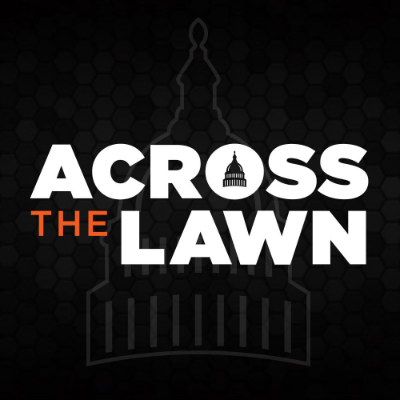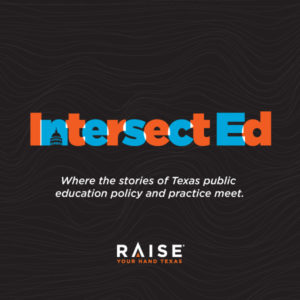
categories
Across the Lawn April 16, 2021

April 16, 2021
87th Legislative Session Weekly Update | Friday, April 16, 2021

The FOUR Things to Know and ONE Thing to Do
Welcome to Across the Lawn, Issue 15.
The fourteenth week of the 87th Legislative Session has come to a close. Check out our one thing to do and four things to know.
Raise Your Hand Texas has a front-row seat to the 87th Legislature (we can see the Capitol across the south lawn). From our vantage point, public education policy issues have never been more important. This weekly session update will keep you informed and engaged.
The One Thing to Do
There are 44 days left in the 87th Legislative session and this is the point where we begin running out of time for additional bills to be heard in committee. Texas legislators are hard at work on bills to improve public education. Take a look at all of the bills we are supporting.
Four Things to Know:
1. It Takes All Three to Support a Strong Recovery
Two of the three things needed for strong school recovery are already in place. And recently, Raise Your Hand Texas used the idea of a three-legged stool to send Texas lawmakers a message about what’s needed next.
Our state leaders have already pledged to honor the funding commitments of 2019’s HB 3 and agreed to hold schools harmless for pandemic-related enrollment declines. Our schools just need the federal stimulus funding they are due to complete the three-legged stool needed not only for a strong school recovery but for a strong Texas recovery.
In the next few weeks, Raise Your Hand’s giant three-legged stool that we placed in the capitol will travel to select areas of the state. The visits will start with an event in Tyler early next week featuring numerous superintendents. Stay tuned to see if and when the three-legged stool may be in your area.
2. Business Leaders across Texas Urge Lawmakers to Send Stimulus to Schools
This week, more than 25 chambers of commerce and business associations across Texas signed on to a letter urging state leaders to begin flowing stimulus funding to our schools.
“The educational impacts of the COVID-19 pandemic threaten our ability to maintain the significant momentum we have built to leverage talent as a strategic asset for Texas,” the letter states. “Without swift and targeted intervention, the college and career readiness of our future workforce will suffer considerably.”
The chambers wrote that if invested wisely, stimulus dollars will ensure the pandemic does not result in a generational educational crisis for Texas students. The letter said educational institutions need support recouping unexpected expenses incurred over the course of the pandemic, including costs associated with migrating to remote learning and providing necessary PPE to students and staff. In addition, many school districts are exploring targeted summer programs to accelerate academic recovery and support college readiness ahead of the 2021-22 school year.
“As soon as possible, we ask leadership and the legislature to clarify when and how much federal funding will be made available to Texas’ education institutions,” the letter states. “State leaders must take advantage of this opportunity to build on our momentum in education from last legislative session, meaningfully invest in our future workforce, and ensure the resiliency of the Texas economy for a generation to come.”
3. Virtual Schools Plan Gets a Hearing in the Senate Education Committee
Raise Your Hand Texas’ David Anderson on Thursday provided testimony on SB 27 by Senator Larry Taylor to members of the Senate Education Committee. The bill recognizes the need for Texas to lead efforts to better utilize technology for our students but removes several limits on virtual school providers, and funds virtual courses below the third grade. Part one and two of the hearing can be found here.
Given virtual providers’ poor track record — in the 2018-19 school year 86% of our students enrolled in the Texas Virtual School Network attended a campus with a “C” or “D” rating — Texas should focus on providing more accountability for these programs not less.
Texas has the opportunity to create more robust virtual programs with a focus on supporting all students, including those who would benefit from some physical services. We should not replicate the poor performance of statewide full-time virtual programs that often enroll students hundreds of miles away. A school district or charter must remain truly responsible for the student’s education and performance in that community, not at the other end of the state.
4. Bills on the Move
- A Committee Substitute for HB 4465 by Rep. Dutton was voted from the House Public Education Committee. This bill has changed substantially since it was filed. It allows the Commissioner to create grant programs for extending instructional time, broadband access, accelerated instruction, air quality, and innovations in curriculum and instruction. One of the major changes from the bill as originally filed is that grants will be funded from the allowed 10% state’s allocation of federal stimulus dollars. The bill also requires local school boards to adopt and submit to TEA a plan for the use of both rounds two and three of federal stimulus funding.
- A Committee Substitute for HB 4545 by Rep. Dutton was also voted from the House Public Education Committee. This bill directs schools to create Accelerated Learning Committees for certain students not performing satisfactorily on the state’s assessment test in order for more targeted interventions to be provided. The bill also creates an accelerated learning and sustainment bonus based on the performance of accelerated learning students on the state’s assessment test, additional funding of up to $1,000 for educationally disadvantaged students and $500 for non-educationally disadvantaged students.
- SB 28 by Sen. Paul Bettencourt was passed from the Senate floor and now moves to the House. This bill added restrictions to the State Board of Education in denying a Commissioner’s charter school application recommendation. The number of votes needed to deny or veto a new charter application by the SBOE is increased in the bill from a majority of members to 9 of the members present and voting. This bill also limits political subdivisions from prohibiting charter schools from operating at any location or within any zoning district of that political subdivision.
Upcoming Hearings: The House Public Education Committee has posted its agenda for Tuesday, April 20 at 8:00 a.m.
Want to listen to the latest in politics and policy?
Subscribe to the Intersect Ed podcast.

Want to look into the future of public education?
3 simple ways to get the scoop, get engaged, and get connected.



